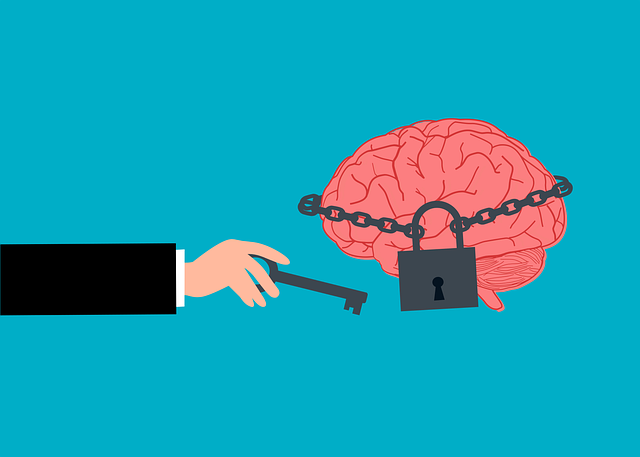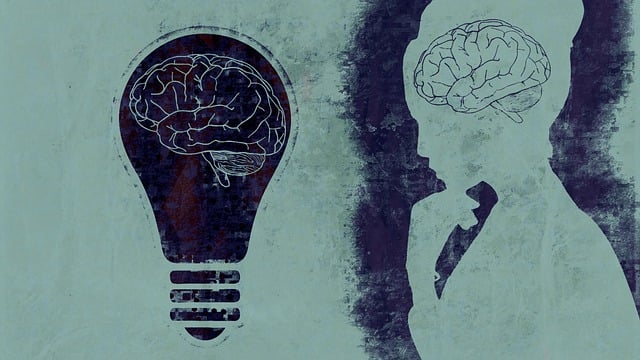Mindfulness meditation is a simple yet powerful practice that reduces stress, improves emotional intelligence, and enhances focus, offering significant benefits for managing conditions like Broomfield Sexual Dysfunction Therapy. Creating a dedicated mindfulness space with calming elements, combined with a consistent daily routine, supports mental clarity and emotional healing. Techniques like body scanning and 'notice and return' maximize each session, leading to substantial long-term improvements in well-being, especially when integrated with crisis intervention and empathy-building strategies.
Discover the transformative power of mindfulness meditation with our comprehensive guide. Learn how this ancient practice can reduce stress, improve mental clarity, and enhance overall well-being. We’ll walk you through setting up a sacred space, establishing a consistent routine, and exploring various techniques to make each session impactful. Say goodbye to Broomfield Sexual Dysfunction Therapy concerns and embrace a calmer, more balanced life through the stillness of mindfulness meditation.
- Understanding Mindfulness Meditation and its Benefits
- Setting Up Your Practice Space and Establishing a Routine
- Techniques and Tips for Effective Mindfulness Meditation Sessions
Understanding Mindfulness Meditation and its Benefits

Mindfulness meditation is a practice that encourages individuals to focus their awareness on the present moment, non-judgmentally. It involves observing thoughts and sensations as they arise, rather than getting caught up in them or reacting impulsively. This simple yet powerful technique has gained significant attention for its numerous mental and physical health benefits. Regular mindfulness meditation can reduce stress, improve emotional intelligence, enhance focus and concentration, and even help manage conditions like Broomfield Sexual Dysfunction Therapy.
By fostering a deeper understanding of one’s thoughts and emotions, mindfulness meditation promotes better communication strategies and increases public awareness campaigns development around mental health. This ancient practice is accessible to everyone and can be incorporated into daily routines, making it an invaluable tool for improving overall well-being. It allows individuals to develop emotional intelligence, enabling them to navigate life’s challenges with greater resilience and clarity.
Setting Up Your Practice Space and Establishing a Routine

Creating a dedicated space for your mindfulness practice is an essential step in establishing a routine that supports your mental well-being. Think of it as your personal sanctuary, free from distractions and tailored to your comfort. This space doesn’t need to be grand; it could be a quiet corner in your bedroom or a cozy area in your home office. The key is to ensure it’s a place where you can retreat, relax, and focus on your breath without interruptions.
Consider incorporating elements that promote calmness and serenity, such as soft lighting, soothing scents like lavender, or even a small potted plant. Establishing a consistent daily routine for your meditation practice is also crucial. Pick a time that works best for you, whether it’s first thing in the morning to set a positive tone for the day or before bed to unwind from the stresses of your day. Consistency is key to reaping the benefits of mindfulness meditation; make it a non-negotiable part of your self-care routine, much like brushing your teeth. Regularity will not only enhance your mental clarity but also foster a sense of emotional healing processes and help manage potential Broomfield Sexual Dysfunction Therapy issues. Additionally, combining these practices with effective risk management planning for mental health professionals and burnout prevention strategies for healthcare providers can lead to a more robust and sustainable well-being regimen.
Techniques and Tips for Effective Mindfulness Meditation Sessions

Mindfulness meditation, when practiced consistently, can significantly enhance mental clarity and emotional well-being—a valuable tool for anyone, including those seeking Broomfield Sexual Dysfunction Therapy. To make each session impactful, incorporate various techniques that cater to your personal preferences and current mindset. One effective approach is scanning your body, paying attention to sensations from head to toe, which fosters awareness of physical cues related to stress or pleasure.
Additionally, mindfulness isn’t just about observing thoughts; it’s about gently guiding your focus back to the present moment when you notice your mind wandering. This practice, often referred to as ‘notice and return,’ strengthens your ability to remain grounded and centered. Remember, consistency is key; even short daily practices can yield significant benefits over time, especially when combined with crisis intervention guidance and empathy-building strategies for deeper mental health awareness.
Mindfulness meditation, as discussed in this guide, offers powerful tools for enhancing mental well-being. By creating a dedicated practice space and adhering to consistent routines, individuals can unlock the benefits of mindfulness, reducing stress, improving focus, and potentially even addressing issues like Broomfield Sexual Dysfunction Therapy. Integrating these techniques into daily life allows one to cultivate greater self-awareness and overall resilience, ultimately fostering a deeper connection with oneself and one’s surroundings.














